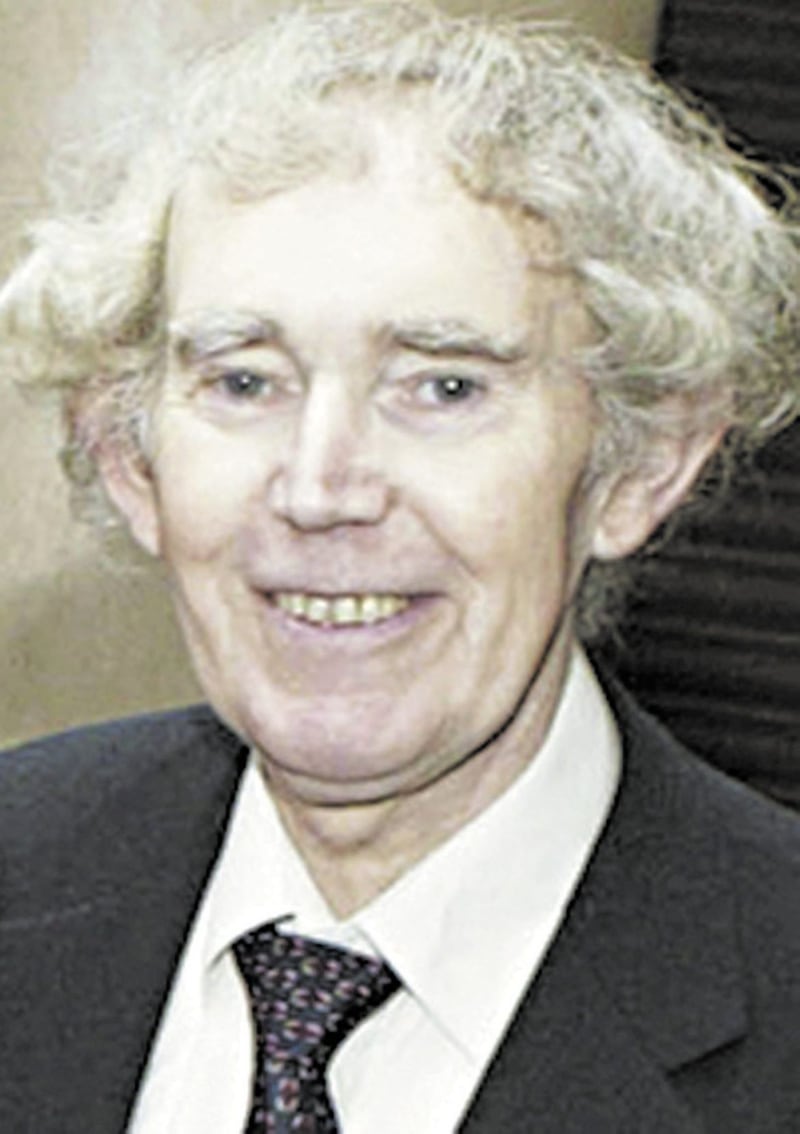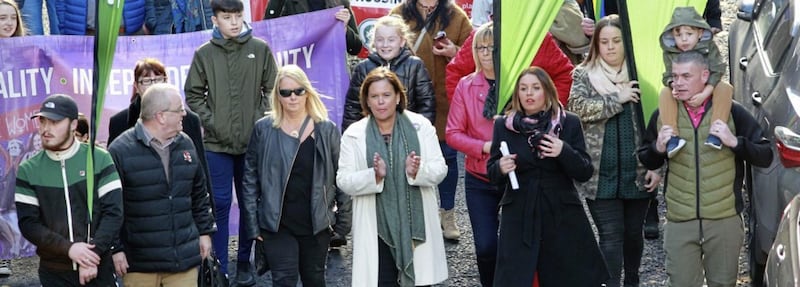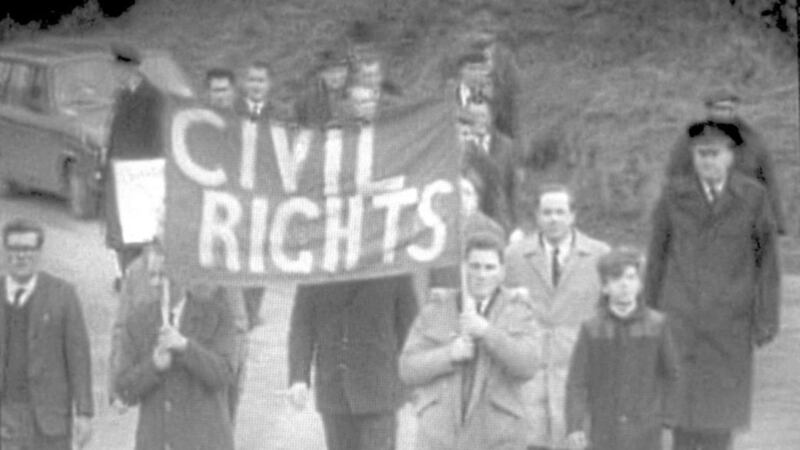WE’VE just come out of a weekend that marked probably one of the most important moments in Northern Ireland’s history, the birth of the civil rights movement.
The October 5 1968 Derry march is considered by many to be the official start of the Troubles. Marchers campaigning against discrimination in housing, inequality and lack of voting rights were batoned off the streets by police officers.
Images of the violence – including west Belfast MP Gerry Fitt having his head split by police officers and three other Labour MPs being hurt – were beamed across the world and shone a light on Northern Ireland for the first time.
We remember, because we are close to the generation who were battered off those streets, who had their heads cracked open and their blood spilled. Our generation has heard those people’s voices, heard them tell the story as witnesses.
The next generation are further away from that era and will only hear it second hand. That is why it is important to hold the peaceful spirit of the civil rights movement sacred and not forge another false narrative.
Read more:
- President Michael D Higgins pays tribute to civil rights' leaders
- Denis Bradley: Sinn Féin's civil rights anniversary march is crass and disrespectful (premium)
- Fionnuala O Connor: Press reports from 1968 show unionist leaders unable to grasp what was happening (premium)
My father was Willie Breslin, a key figure in the Derry Labour Party and a leading light in the civil rights movement back in 1968. He helped to organise the now infamous October 5 March.
My father was a pacifist. He marched to demand rights for the ordinary citizens – social and economic rights, housing rights and equality for all.
He used his intelligence, determination and his words as weapons, not guns and not violence.

My dad was a good man – a history teacher in St Colman's High School in Strabane. He had the unique position of being able to teach from the history books that he was actually in.
During his last days in the hospice there was a constant stream of his students visiting him, telling him how he changed their lives. They said he made them look for a different way, beyond rioting with the British soldiers outside the school, beyond picking up a gun. Many said he talked them out of joining the IRA.
They said he was the stuff of legends, once crawling across the school car park on his belly during a fierce gun battle between the army and the IRA to lead a young pupil caught up in the middle of it to safety.
He knew there was a different way, a better way to make your voice heard.
He taught his children to think, no stand up for ourselves, to shine a light on injustice, to fight with our heads and our words and not our fists. And that is what I try to do every single day.
That is what I try to teach my own children. And I hope they will teach their children the same thing. I hope they can look back at my father’s image, 150 years from now, when we are all dead and gone, and say that is a great man who stood up for those without a voice, who was peaceful, and fearless, who did what was right, not what was easy.
Because our young people are listening to the stories we tell. They weren’t there, they are depending on us to guide them, to paint a picture of the past so that a future can be built.
That is why I was utterly flummoxed by Sinn Fein’s decision to mark the 50th anniversary of civil rights by marching the original route in Derry and championing the heroes of Oct 5.

Those who commemorate IRA volunteers – people who took not only the civil rights but the lives of widowed mother-of-10 Jean McConville in Belfast, Leanne Murray (13) when they blew up the Shankill Road, Kathryn Eakin (8) when they exploded bombs in Claudy and tied Derry father Patsy Gillespie to his van and ordered him to drive to his death while they held his wife and children at gunpoint and many, many more brutal, heartbreaking, unspeakable atrocities – are no champions of civil rights in my eyes.
But then, perhaps there are young people watching, listening and absorbing a narrative that puts them suddenly on the shoulders of peaceful giants.
And if we feed our children a narrative, they will believe it. Even if that means erasing all the awkward, uncomfortable and brutal truths from our history. And that is a dangerous thing.








